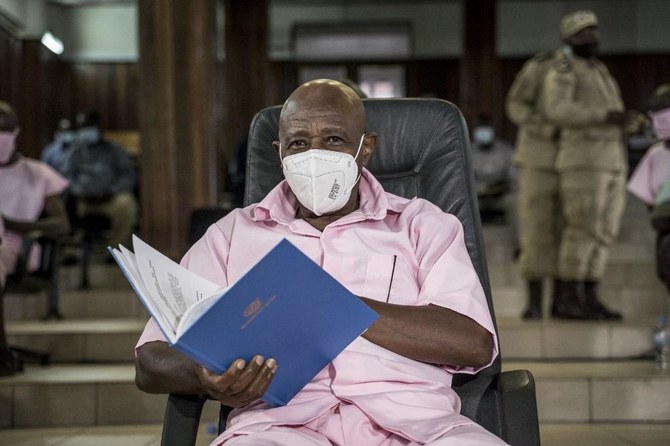
Credit: Simon Wohlfahrt/AFP, africanews
On February 17th, Paul Rusesabagina of Hotel Rwanda fame went on trial in his home country of Rwanda. The government of Paul Kagame charged him on nine counts, including terrorism and supporting conspirators who plotted to overthrow Kagame’s regime in 2018 and 2019. As manager of the Hotel des Milles Collines in 1994, Rusesabagina saved the lives of 1,268 Tutsis during the Rwandan Genocide. He was awarded the Presidential Medal of Freedom by George W. Bush in 2005.
Rusesabagina renounced his Rwandan citizenship in 1996, becoming a Belgian citizen instead. Rwanda claimed independence from Belgium in 1962.
On August 29th of last year, Rusesabagina was on his way to Burundi from Dubai when members of Kagame’s staff—secretly onboard his private jet—illegally rerouted the plane to Rwanda. He has been awaiting trial ever since. Rusesabagina has claimed that he is being held hostage and has urged for his trial to be continued in Belgium.
1. Is there any truth to these charges?
There is evidence on both sides. However, regardless of the actual validity of the charges, Rusesabagina is unlikely to receive a fair trial.
On the one hand, Rusesabagina was a leader of a coalition of exiled opposition groups that includes a militant wing. He has pledged his “unreserved support” and admitted to contributing money to a group that claimed responsibility for a number of attacks near the Burundian border. In a now widely-circulated address, Rusesabagina called on Rwandans “to use any means possible to bring about change” and “to attempt our last resort”; he later dubiously claimed this was a call for diplomacy, not violence.
On the other hand, Rusesabagina was abducted by a regime with a track record of “disappearing” and imprisoning political opponents. Human Rights Watch and the American Bar Association’s Center for Human Rights both argue the Rwandan government has violated international law in this case, and 31 bipartisan members of Congress as well as the EU have condemned their actions. And there remain “grave concerns” that he will not receive a fair trial.
2. What has happened in Rwanda since the Civil War?
Rwanda has continued to face serious challenges, with civil rights proving elusive in spite of economic success.
Paul Kagame, Rwanda’s current President, rose to power after leading a rebel group that defeated Hutu extremists in 1994. Kagame’s militia, the Rwandan Patriotic Front, helped end the Rwandan Genocide, overthrowing the sadistic Hutu authorities that massacred more than a million Tutsis and moderate Hutus. Kagame has since overseen economic development and remains popular, but has ruled as a ruthless authoritarian with flagrant disregard for political freedom. Human Rights Watch details the dire situation here.
The only way forward for this nation still reeling from tragedy, write Professors Noel Twagiramungu and Joseph Sebarenzi, is developing a true multi-ethnic democracy with checks and balances and fair elections in the mold of post-aparteid South Africa. Hopefully, the illegal imprisonment of a former national hero in Rwanda will focus the world’s attention on the East African country and spur change from within the embattled nation.



